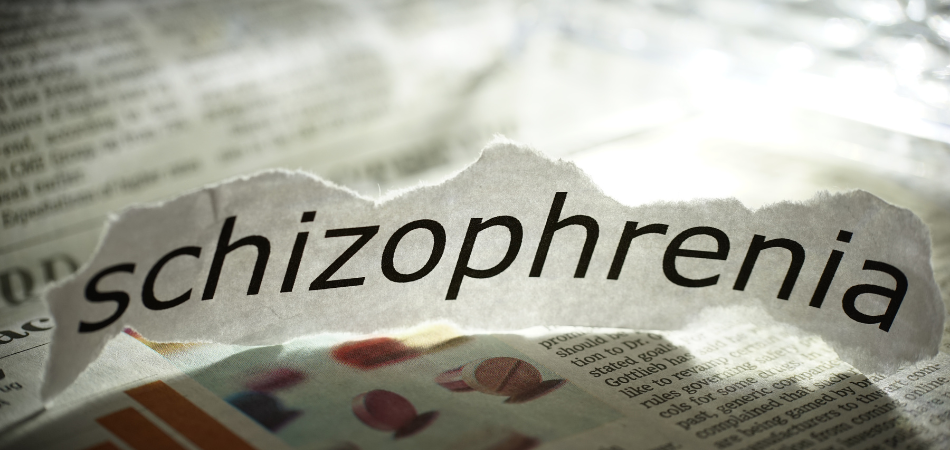Schizophrenia and addiction

Written by:
Last Updated:
June 30th, 2025
Schizophrenia is a severe and lifelong disorder, one which can give those suffering a hard time distinguishing their own thoughts and ideas from reality. On average, about one in every hundred people will undergo a schizophrenic episode at some point in their lives, and without the right treatment, this illness can be challenging to navigate.
Many individuals diagnosed with schizophrenia can also develop an addiction, and when this happens, it is known as a dual diagnosis. In fact, research shows that around 50% of the schizophrenic population will encounter issues with alcohol and substance abuse in their lifetime.

What is schizophrenia?
Schizophrenia is one of the most misunderstood illnesses to date. While many people often interpret this condition to mean the same thing as multiple or split personalities, this does not accurately represent the disorder. In truth, schizophrenia is a syndrome that can lead to scattered patterns of thinking, resulting in impaired judgement or behaviour and an inability to interpret reality. The illness can also cause individuals to experience symptoms such as delusions, hallucinations, and disordered thinking, which can severely impact their day-to-day lives. While schizophrenia strikes most commonly in their teenage years, some can experience late onset schizophrenia as late as seventy years old.
Is there a link between schizophrenia and addiction?
Addiction is a condition that, much like schizophrenia, does not discriminate and can affect people from all walks of life. It is important to note that addiction goes beyond substances and can also extend to behaviours like gambling addiction.
For those who struggle with a co-occurring disorder, such as anxiety or depression, research shows that these individuals are at a higher risk of developing an addiction. Schizophrenia is no different, and evidence shows us that, among other addictions, substance use disorders occur commonly in patients diagnosed with the condition. While each of us is different, and it is impossible to provide just one explanation for why this happens, some possible reasons that those with schizophrenia turn to addictive behaviours can include the following:

To self-medicate
Addiction can often develop as a crutch to manage the pressures of the outside world or cope with unresolved issues. This explanation is not exclusive to those with schizophrenia but can occur to anyone. For example, many clients seeking out addiction treatment will admit to using alcohol or illicit substances as a support, or coping mechanism to manage the challenges present in everyday life. This maladaptive coping strategy can also be used to alleviate some of the symptoms associated with schizophrenia. These include:
- Uncomfortable emotions (such as anxious or depressive symptoms.)
- Visual or auditory hallucinations
- Delusions (beliefs that are not grounded in reality.)
Others might also fall into addictive behaviours to distract themselves from their schizophrenia. For example, some individuals can develop eating disorders such as anorexia to shift their focus from their mental health to something they feel they can control, like their food intake and weight.
To improve interpersonal relationships
Schizophrenia can affect the way that sufferers interact with other people, making it particularly difficult to form healthy relationships. As a result, people can turn to substances like drugs or alcohol in an effort to become more sociable and integrate with others more naturally.
To manage the side effects of antipsychotic medication
Some of the side effects that can present themselves in antipsychotic medication can be severe, inducing symptoms such as:
- Drowsiness
- Weight gain
- Nervousness
- Sedation
Those taking antipsychotic medication might turn to addictive substances as a way to offset these symptoms so they can manage them with less discomfort.
Risk factors of addiction in schizophrenia
While turning to addictive substances such as alcohol or drugs might provide a temporary reprieve in the short term, can actually exacerbate schizophrenia in the long term. Some of the risk factors of addiction associated with schizophrenia include:
- Worsening of schizophrenic symptoms and episodes
- Addictive substances (such as marijuana) triggering schizophrenic symptoms such as psychosis
- Aggravation of unpleasant emotions (such as anxiety or depression)
It is risks like this that make an active addiction so dangerous, especially if you are already navigating a condition like schizophrenia. Therefore, if you are still unsure whether to engage in treatment to overcome your addiction, we would strongly urge you to reconsider this to protect your safety.
Misconceptions about those with schizophrenia and addiction
‘Addiction and schizophrenia are all in your head.’
Statements like this are very offensive to those living with addiction or schizophrenia, as they imply that such serious illnesses can be switched off or cured with no treatment or effort involved. It takes a great deal of personal strength to navigate either schizophrenia or addiction, and it is important we remain compassionate and understanding to anyone dealing with the condition.
‘You don’t look like an addict or a schizophrenic.’
Those who are dealing with addiction or schizophrenia come in all shapes and sizes, and there is no set ‘look’ for anyone with the condition. In fact, it is statements like these that prevent individuals from seeking out the proper support in the first place.
‘A little self-care is all it takes to overcome addiction or schizophrenia.’
While self-care is an important part of a healthy life, keeping us grounded and focused on pursuits that make us happy, schizophrenia and addiction are both conditions that require proper treatment (and, in some cases, medication) to maintain. For someone who might be struggling severely with schizophrenia or addiction, suggestions of self-care can be dismissive of the realities of these conditions.
‘All schizophrenics and addicts have violent tendencies.’
It can be very easy for us to fall victim to stereotypes about mental health, witnessing unrealistic portrayals of violent individuals with schizophrenia or struggling with addiction and assuming that this representation is true for everyone. However, this is not always the case, and research shows that the majority of individuals with schizophrenia are not violent and are, in fact, more likely to be the victims of violent crimes.

How do we treat both schizophrenia and addiction?
If you are struggling with the co-occurring disorder of schizophrenia and addiction and want to make a full recovery, it is vital that before engaging with an addiction treatment programme at a centre like Sanctuary Lodge, you are already connected to the proper medication and treatment to support your mental health. This is because schizophrenia is likely your primary condition, and if you do not feel that you have your schizophrenia under control, the chances of falling back into addictive behaviours increases. Therefore, we would strongly recommend that before seeking addiction support, your schizophrenia has been addressed and is properly managed.
If your schizophrenia is under control and you wish to seek support at Sanctuary Lodge, we have plenty of treatments designed to target both conditions simultaneously. Some of these include:
Psychotherapy – With specific treatments tailored to you, psychotherapy (including CBT and counselling) can be a fantastic way to approach both addiction and schizophrenia, as it gives you the space to explore how each condition informs one another as well as methods to manage any potential triggers to addictive behaviours in the future.
Support groups – Addiction thrives in isolation, and the best way to challenge this is through group work, surrounding yourself with understanding individuals, and in spaces free from judgement. Similarly, it has also been found that those with schizophrenia can also greatly benefit from peer support.
Recovery is possible
For all of us, it can be uncomfortable to share our vulnerabilities with strangers, making the admission that we have a problem and accepting that it might be time to finally seek help. Feeling so indisposed, the thought of opening up to those who do not understand is far from an easy task. However, from all of us at Sanctuary Lodge, we would like to express to you that we are familiar with the devastating effects of addiction and know first-hand just how difficult it can be to break the self-destructive cycle of dependence. But, saying this, we also know just how transformative recovery can be.
A non-negotiable fact that exists across all eight of our UKAT centres is that each treatment facility we operate is a judgement-free zone, one where individuals can feel safe and comfortable enough to begin the healing process and start on the road to rehabilitation. At Sanctuary Lodge, our team is brimming with staff who are experts in treating a wealth of co-occurring disorders. This means that, if you stay with us, you can be confident in the quality of your care.



